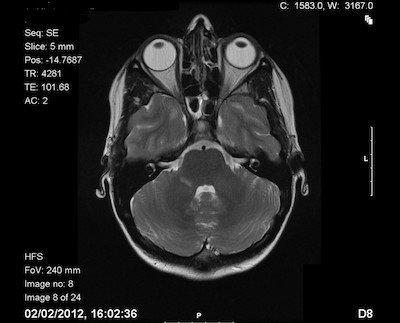
Update, 2022:
With our funding, researchers have conducted the first dementia study to adequately represent a diverse UK population. The study showed that both ethnicity and socioeconomic deprivation are important risk factors for dementia. Our investment in the PNU has also allowed Dr Charles Marshall to develop a new cognitive neurology service at Barts Health. This brings specialist dementia diagnoses to a population that didn’t have access to these important services before.
"Brain diseases such as dementia are among the greatest public health challenges of the 21st century. By spotting them early, we may be able to prevent or delay them – and help people age more healthily."Professor Jack Cuzick, CBE Director of Wolfson Institute of Preventive Medicine

A brain scan
The difference we’re making
To tackle these issues head-on, we’ve awarded funding of £1,5m to the Preventive Neurology Unit (PNU) at Queen Mary University of London. This funding is:
- enabling large-scale trials to find the people most at risk and investigate whether preventative treatments work;
- facilitating research with potential global health significance, which could help hundreds of thousands of people age more healthily;
- potentially easing the strain on the NHS by reducing the number of patients with degenerative neurological diseases;
- and researching how we can use simple treatments to stop these disorders, such as:
- Can nicotine lower your risk of developing Parkinson’s Disease?
- Can vaccinating against the Epstein Barr Virus prevent multiple sclerosis?
- Can aspirin reduce the effects of dementia?




